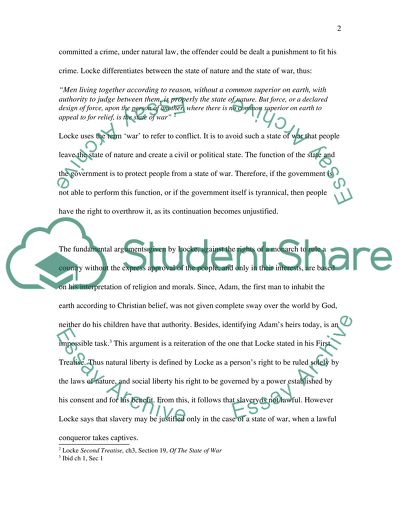Cite this document
(“John Locke's Second Treatise on Government Book Report/Review”, n.d.)
John Locke's Second Treatise on Government Book Report/Review. Retrieved from https://studentshare.org/miscellaneous/1519153-john-lockes-second-treatise-on-government
John Locke's Second Treatise on Government Book Report/Review. Retrieved from https://studentshare.org/miscellaneous/1519153-john-lockes-second-treatise-on-government
(John Locke'S Second Treatise on Government Book Report/Review)
John Locke'S Second Treatise on Government Book Report/Review. https://studentshare.org/miscellaneous/1519153-john-lockes-second-treatise-on-government.
John Locke'S Second Treatise on Government Book Report/Review. https://studentshare.org/miscellaneous/1519153-john-lockes-second-treatise-on-government.
“John Locke'S Second Treatise on Government Book Report/Review”, n.d. https://studentshare.org/miscellaneous/1519153-john-lockes-second-treatise-on-government.


